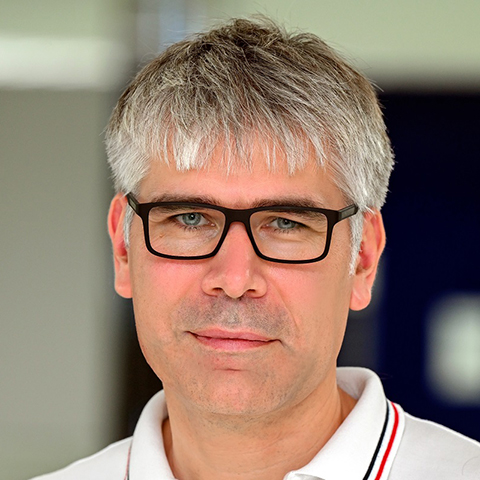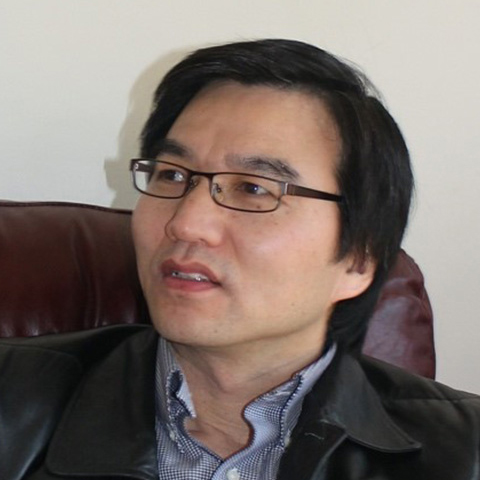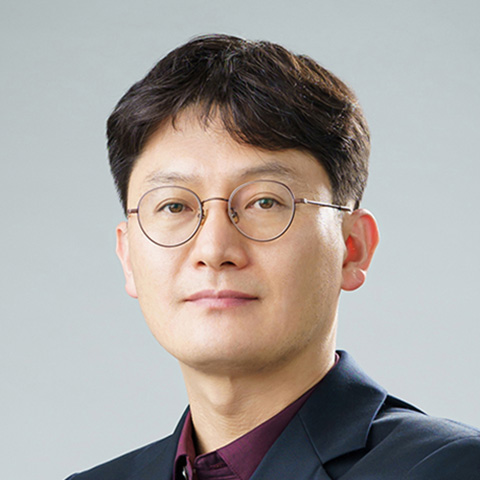Session Information
Cluster 2
Interacting AI with Reality
Co-Chairs
Hyunjin Park, Byoung-Tak Zhang, Minsu Cho
Description
AI technology is making disruptive impacts in many domains. However, its continued success depends on the capability of AI technology to fully interact with the multi-modal surrounding environment, especially incorporating human feedback. Here, we invite distinguished researchers to discuss how AI technology might enhance interaction with reality in 1) a hyper-real metaverse, 2) a learning machine that continuously extracts knowledge, and 3) a medical domain with expert intervention.
#Interactive AI
#AI in Meta-verse
#Universal Learning Machine
#Medical AI
Program
| Day 1 (November 2) | ||
|---|---|---|
| 10:00~11:05 | Chair: Hyunjin Park | |
| Language-guided Visual Navigation and Manipulation | Ivan Laptev (MBZUAI) |
|
| Relational Inference for 3D Shapes: Orientation, Correspondence, and Assembly | Minsu Cho (POSTECH) |
|
| 15:30~17:00 | Chair: Byoung-Tak Zhang | |
| Fast Development and Deployment of AI Techniques for Medical Imaging | Dinggang Shen (Shanghai Tech U.) |
|
| AI Applications in Medicine | Hyunjin Park (Sungkyunkwan U.) |
|
| Day 2 (November 3) | ||
|---|---|---|
| 10:00~11:05 | Chair: Minsu Cho | |
| Universal Learning Machine: A Machine that Continuously Learns through Active Interaction with the Real-world Environment | Byoung-Tak Zhang (Seoul Nat'l U.) |
|
| Day 1 (November 2) | |
|---|---|
| 10:00~11:05 | |
| Chair: Hyunjin Park | |
| Language-guided Visual Navigation and Manipulation | Ivan Laptev (MBZUAI) |
| Relational Inference for 3D Shapes: Orientation, Correspondence, and Assembly | Minsu Cho (POSTECH) |
| 15:30~17:00 | |
| Chair: Byoung-Tak Zhang | |
| Fast Development and Deployment of AI Techniques for Medical Imaging | Dinggang Shen (Shanghai Tech U.) |
| AI Applications in Medicine | Hyunjin Park (Sungkyunkwan U.) |
| Day 2 (November 3) | |
|---|---|
| 10:00~11:05 | |
| Chair: Minsu Cho | |
| Universal Learning Machine: A Machine that Continuously Learns through Active Interaction with the Real-world Environment | Byoung-Tak Zhang (Seoul Nat'l U.) |
Talk Title
TBA
Talk Title
Language-guided Visual Navigation and Manipulation
Abstract
Computer vision has recently excelled on a wide range of tasks such as image classification, segmentation and captioning. This impressive progress now powers many applications of internet imaging and yet, current methods still fall short in addressing embodied understanding of visual scenes. What will happen if pushing a glass over the table border? What precise actions are required to plant a tree? Building systems that can answer such questions from visual inputs will empower future applications of robotics and personal visual assistants while enabling these applications to operate in unstructured real-world environments. Following this motivation, in this talk we will address models and learning methods for visual navigation and manipulation. In particular, we will focus on agents that perform tasks according to natural language instructions. We will discuss representations and models that combine heterogeneous inputs such as language, multi-view observations and history, and will demonstrate state-of-the-art results on several recent benchmarks.
Short bio
Ivan Laptev is a visiting professor at MBZUAI and a head of research at VisionLabs. He is also a senior researcher on leave from Inria Paris. He received a PhD degree in Computer Science from the Royal Institute of Technology in 2004 and a Habilitation degree from École Normale Supérieure in 2013. Ivan's main research interests include visual recognition of human actions, objects and interactions, and more recently robotics. He has published over 120 technical papers, most of which appeared in international journals and major peer-reviewed conferences of the field. He served as an associate editor of IJCV and TPAMI, he served as a program chair for CVPR’18 and ICCV'23, he will serve as a program chair for ACCV'24. He has co-organized several tutorials, workshops and challenges at major computer vision conferences. He has also co-organized a series of INRIA summer schools on computer vision and machine learning (2010-2013) and Machines Can See summits (2017-2023). He received an ERC Starting Grant in 2012 and was awarded a Helmholtz prize for significant impact on computer vision in 2017.
Talk Title
Relational Inference for 3D Shapes: Orientation, Correspondence, and Assembly
Abstract
Our research team aims to develop intelligent vision systems that create, control, and exploit a hyper-real metaverse where we can train machines to learn real-world tasks and transfer them to a physical environment in the future. In this talk, I will briefly summarize the research highlights of our team this year and then introduce our recent work on learning to analyze 3D object shapes and infer relations between them: orientation estimation, point-wise correspondence, and geometric shape assembly.
Short bio
Minsu Cho is an Associate Professor at POSTECH, South Korea, leading POSTECH Computer Vision Lab. Before joining POSTECH in the fall of 2016, he worked as a postdoc and a starting researcher at Inria WILLOW team and École Normale Supérieure, Paris, France. He completed his Ph.D. in 2012 at Seoul National University, Korea. His research lies in computer vision and machine learning, especially in the problems of visual semantic correspondence, symmetry analysis, object discovery, action recognition, and minimally-supervised learning. He is interested in the relationship between correspondence, symmetry, and supervision in visual learning. He is an editorial board member of the International Journal of Computer Vision (IJCV) and IEEE Transactions on Pattern Analysis and Machine Intelligence (TPAMI) and has been serving as an area chair in conferences, including CVPR, ICCV, and NeurIPS. In 2020, he was inducted into the Young Korean Academy of Science and Technology (Y-KAST).
Talk Title
Universal Learning Machine: A Machine that Continuously Learns through Active Interaction with the Real-world Environment
Abstract
Current AI models mostly (1) lie in closed-world environments which have limited uncertainties and (2) require steady human intervention in the training. We first introduce our research goal that addresses above limitations: Universal Learning Machine (ULM), a self-reflective system that improves itself by active interaction with the world. Then, we present our recent experimental work toward ULM to build a robotic AI system that learns a task by perception-action cycle in a self-supervised way.
Short bio
Byoung-Tak Zhang is the POSCO Chair Professor at Seoul National University's (SNU) Computer Science and Engineering Department and Director of the AI Institute, SNU. He served as President of the Korean Society for Artificial Intelligence (2010-2013) and the Korean Society for Cognitive Science (2016-2017). He earned his PhD in computer science from the University of Bonn, Germany, and his BS and MS from SNU. Prior to joining SNU in 1997, he was with the German National Research Center for Information Technology (GMD). He's been a Visiting Professor at MIT CSAIL, Samsung SAIT, German BMBF Excellence Centers in CoTeSys and CITEC, and Princeton Neuroscience Institute. Presently, he serves as Associate Editors for various journals in AI. Among his accolades are the Red Stripes Order of Service Merit, INAK Award, and the IEEE Distinguished Service Award.
Talk Title
Fast Development and Deployment of AI Techniques for Medical Imaging
Abstract
I will introduce our developed full-stack, full-spectrum Artificial Intelligence (AI, or deep learning) techniques for whole clinical workflow, from data acquisition to disease detection, follow-up, diagnosis, therapy, and outcome prediction. In particular, I will demonstrate some innovative technical development and implementation in scanners and clinical workflows, i.e., serving for fast MR, low-dose CT/PET acquisition, and clinical diagnosis/therapy.
Short bio
Dinggang Shen is a Professor and a Founding Dean with School of Biomedical Engineering, ShanghaiTech University, Shanghai, China, and also a Co-CEO of United Imaging Intelligence (UII), Shanghai. He is a Fellow of IEEE, AIMBE, IAPR, and MICCAI. He was also a recipient of the Distinguished Investigator Award from The Academy for Radiological & Biomedical Imaging Research, USA (2019). He was Jeffrey Houpt Distinguished Investigator and a Full Professor (Tenured) with The University of North Carolina at Chapel Hill (UNC-CH), Chapel Hill, NC, USA, directing The Center of Image Analysis and Informatics, The Image Display, Enhancement, and Analysis (IDEA) Lab, and The Medical Image Analysis Core. He was also a tenure-track assistant professor in the University of Pennsylvanian (UPenn), and an Instructor in the Johns Hopkins University. His research interests include medical image analysis, computer vision, and pattern recognition. He has published more than 1600 peer-reviewed papers in the international journals and conference proceedings, with H-index 134 and over 78K citations. He serves as an Editor-in-Chief for Frontiers in Radiology, as well as an editorial board member for eight international journals. Also, he has served in the Board of Directors for MICCAI Society in 2012-2015, and was General Chair for MICCAI 2019.
Talk Title
AI Applications in Medicine
Abstract
AI technology is making great strides in many domains and medicine is no exception. As with other domains, the application of AI needs careful domain-specific considerations. With medicine, issues of explainability, expert intervention, and data imbalance are particularly important. Here, I will introduce the research topics of our project and recent research works. First, I will discuss a multi-modal data project combining neuroimaging with gene data for Parkinson’s disease diagnosis where explainability was enhanced with sparsity constraint and prior knowledge. Second, I will also discuss a self-supervised and knowledge distillation paper that tackles the data imbalance issue for classifying X-ray images into distinct classes. Future plans for the projects will be presented in the end.
Short bio
Hyunjin Park received a B.E. in electrical engineering from Seoul National University, Seoul, Korea in 1997, an M.S. in electrical engineering from University of Michigan in 2000, and a Ph.D. in biomedical engineering from University of Michigan, Ann Arbor, USA in 2003. He was a research faculty with University of Michigan Hospital in the Department of Radiology. He is currently a Professor of Electrical Engineering and Artificial Intelligence at Sungkyunkwan University, Suwon, Korea. His research interest includes image processing methods for medical imaging, medical image analysis for cancer management, and computer vision application for medical imaging. He is on the editorial boards of several SCIE index papers with 150+ papers, 5000+ citations, and an h-index of 36 (google scholar) as of October 2023.
Talk Title
TBA
Talk Title
TBA





